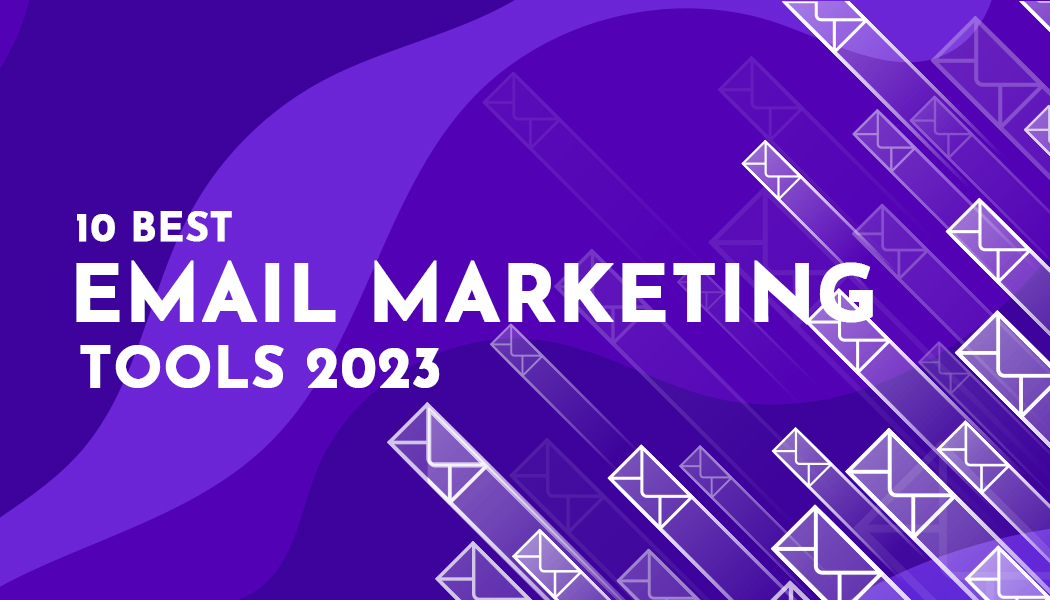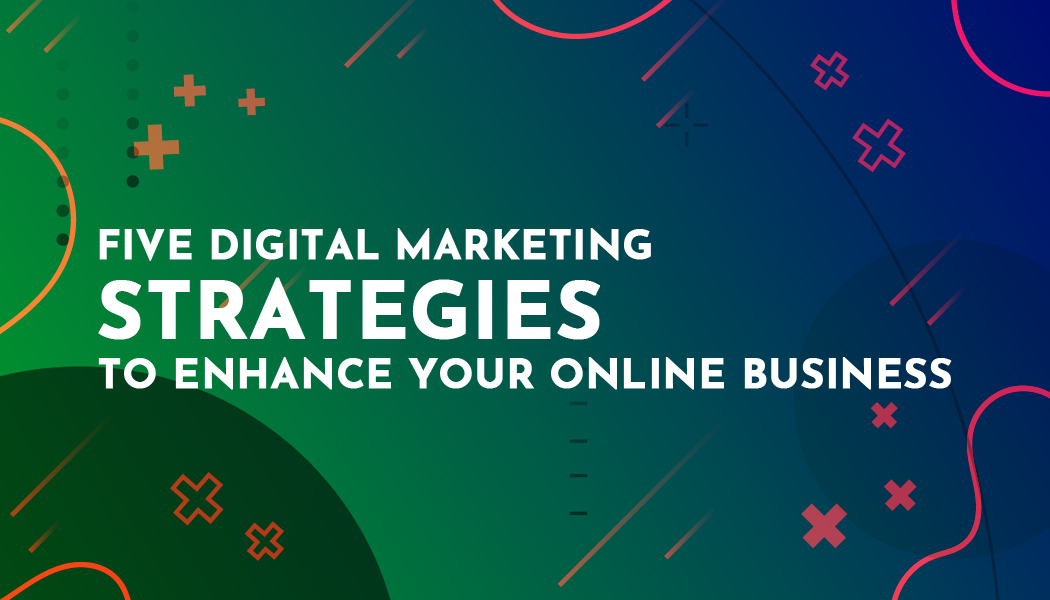10 Best Email Marketing Tools (2023)
Email marketing is the most powerful marketing channel despite the emergence and evolution of other channels. It has an unbeatable track record with an average return on investment of $44 per $1 spent. It offers numerous benefits, including cost-effectiveness, audience engagement, and personalized communication.
With the right email marketing tool, any business can streamline its campaigns, automate processes, and achieve better conversion rates. In this blog post, we will explore the top 10 email marketing tools you should consider investing in to take your campaigns to the next level. Whether you are a small business owner, marketing executive, or a chief marketing officer these email marketing platforms are designed to cater to your specific needs and help you achieve your marketing goals.
1. GetResponse
GetResponse is an all-in-one email marketing platform that caters to businesses of all sizes. It offers robust features, including email automation, landing page creation, an intuitive drag-and-drop editor, A/B testing, comprehensive analytics, advanced segmentation, and webinar hosting.GetResponse stands out with its advanced automation capabilities, allowing businesses to create complex workflows and deliver highly personalized messages based on user behavior.
It also offers a user-friendly interface and an extensive library of pre-designed email templates, making it easy for users to create visually appealing emails without any coding knowledge. GetResponse's integration options are also noteworthy, as it seamlessly integrates with popular e-commerce platforms, CRMs, and other marketing tools, enabling businesses to streamline their processes.
Best for businesses seeking advanced automation features, seamless integrations, and a user-friendly interface.
Pros:
-
Has advanced automation features.
-
Offers a user-friendly interface.
-
Provides extensive integration options.
Cons:
-
Has limited customization options for forms.
-
Higher pricing plans, which may be expensive for small businesses.
2. Drip
Drip is the go-to platform for e-commerce businesses. Compared to other tools, it offers highly advanced segmentation and personalization features, which help when sending targeted emails based on customer behavior and preferences.
Drip also has a stand-out visual workflow builder, which simplifies the creation of complex automation sequences. Additionally, it offers deep integration with e-commerce platforms, enabling businesses to leverage data from their online stores to create personalized product recommendations and recover abandoned carts.
While Drip may have a steep learning curve for beginners, its powerful features make it a top choice for e-commerce businesses that want to take their email marketing efforts to the next level.
Best for e-commerce businesses seeking advanced segmentation, personalized product recommendations, and abandoned cart recovery features.
Pros:
-
Powerful automation capabilities.
-
Seamlessly integrates with e-commerce platforms.
-
Offers advanced customer segmentation features.
Cons:
-
A steeper learning curve for beginners.
-
Pricing may be higher compared to some other tools.
3. Saleshandy
If you work within a sales team, Saleshandy is the best choice for you. It offers features like email tracking, email scheduling, and mail merge, all of which are beneficial when interacting with business leads. It also offers email templates and automated follow-ups which are extremely helpful in streamlining outreach efforts. Saleshandy's detailed tracking and analytics help in monitoring opens, clicks, and replies, providing valuable insights for sales teams to measure the effectiveness of their email campaigns.
Best for sales teams looking for email tracking, scheduling, and follow-up features to enhance their outreach efforts.
Pros:
-
Has extensive tracking and analytics.
-
Great for email scheduling and follow-up automation.
-
Offers affordable pricing plans.
Cons:
-
Limited integration options.
-
Focuses on sales outreach.
4. Sendinblue
Sendinblue is a one-stop shop for all your web communication needs. It offers comprehensive features that combine email marketing, SMS marketing, and live chat. Sendinblue's email marketing features include an easy-to-use email editor, pre-built templates, and automation capabilities. The platform also offers transactional email capabilities, allowing businesses to send personalized emails triggered by user actions. It also includes an integrated CRM system, so businesses can effectively manage customer relationships and track engagement across different channels.
Best for businesses seeking a unified marketing solution that integrates email, SMS, and live chat.
Pros:
-
It’s an all-in-one marketing solution.
-
Has an easy-to-use interface.
-
Has affordable pricing plans.
Cons:
-
Some advanced features require higher-tier plans.
-
Limited customization options for templates.
5. ActiveCampaign
ActiveCampaign is a popular email marketing and automation tool that offers a wide range of features, including automation workflows, segmentation, CRM integration, and behavior tracking. ActiveCampaign integrates seamlessly with CRMs, allowing businesses to unify customer data and enhance lead nurturing and customer relationship management. ActiveCampaign's machine learning capabilities, such as predictive sending and personalized recommendations, further set it apart from other tools in its category.
Best for businesses seeking advanced automation, segmentation, and CRM integration capabilities.
Pros:
-
Powerful automation and segmentation features.
-
CRM integration for managing customer data.
-
Predictive sending and machine learning capabilities.
Cons:
-
A steeper learning curve for beginners.
-
Has expensive pricing plans, which may be expensive for small businesses.
6. Mailchimp
Mailchimp is one of the most popular email marketing tools. It is great for anyone who is starting their email marketing journey and offers beginner-friendly features, including a user-friendly interface, a drag-and-drop editor, a wide variety of templates, automation features, A/B testing, and detailed analytics. Another significant advantage of Mailchimp is its integration with popular e-commerce platforms, making it an excellent choice for online businesses looking to leverage their data.
Best for businesses starting their email marketing journey.
Pros:
-
Beginner-friendly interface.
-
Offers an extensive template library.
-
Integrates with e-commerce platforms.
Cons:
-
Limited segmentation options in lower-tier plans.
-
Expensive pricing for large subscriber lists.
7. Constant Contact
Constant Contact is an easy-to-use email marketing tool suitable for content creators and small businesses. It offers drag-and-drop editing, pre-built templates, list management features, automation capabilities, social media integration, and real-time tracking to monitor campaign performance. While it may lack advanced automation capabilities, it compensates with its social media integration, enabling businesses to have a holistic marketing approach by integrating their email and social media campaigns.
Best for small businesses seeking an easy-to-use email marketing tool with social media integration.
Pros:
-
Beginner-friendly interface.
-
Has robust list management features.
-
Integrates with social media integration for holistic marketing.
Cons:
-
Offers limited advanced automation features.
-
Can be expensive for larger subscriber lists.
8. Moosend
Moosend is a feature-rich email marketing tool that is well-known for its simplicity and affordability. It offers a drag-and-drop editor, automation workflows, advanced personalization options, landing page creation features, and real-time analytics to measure campaign success. While it may have fewer integration options compared to other tools, its competitive pricing and user-friendly interface make it an attractive choice for small businesses.
Best for small businesses seeking an affordable and user-friendly email marketing tool with advanced personalization options.
Pros:
-
Easy-to-use interface.
-
Offers advanced personalization options.
-
Has competitive pricing plans.
Cons:
-
Some advanced features may require technical knowledge.
-
Limited integrations compared to other tools.
9. ConvertKit
ConvertKit is a popular email marketing tool that is primarily designed for content creators and bloggers. It provides automation features, customizable forms, landing page creation options, and segmentation features. While it may have limitations in visual editing capabilities, ConvertKit's focus on simplicity, intuitive user interface, and emphasis on serving the content creator community make it a great choice for solopreneurs.
Best for content creators and bloggers looking for simplified automation workflows and customized forms.
Pros:
-
Designed for content creators and bloggers.
-
Offers simplified automation workflows.
-
Has an intuitive user interface.
Cons:
-
Has limited visual editing capabilities.
-
Higher pricing for larger subscriber lists.
10. HubSpot
HubSpot is a comprehensive marketing automation platform with email marketing capabilities. It provides a wide range of features, including CRM integration, lead scoring, and personalization. HubSpot's extensive analytics capabilities enable businesses to track the performance of their email campaigns and make data-driven decisions.
While HubSpot's higher pricing plans may be expensive for small businesses, its robust features and integration options make it a top choice for companies that want to leverage its full suite of marketing tools.
Best for businesses seeking an all-in-one marketing automation platform with advanced personalization and CRM integration.
Pros:
-
It’s an all-in-one marketing automation platform.
-
Offers powerful CRM integration features.
-
Has advanced personalization and lead-scoring capabilities.
Cons:
-
Higher pricing plans may be expensive for small businesses.
-
A steeper learning curve for beginners.
Conclusion
The 10 tools discussed above offer a variety of features, benefits, and pricing options to cater to different business needs. By leveraging these email marketing software, you can streamline your campaigns, automate processes, and achieve higher conversion rates. However, the most important thing is choosing the platform that best aligns with your requirements.




